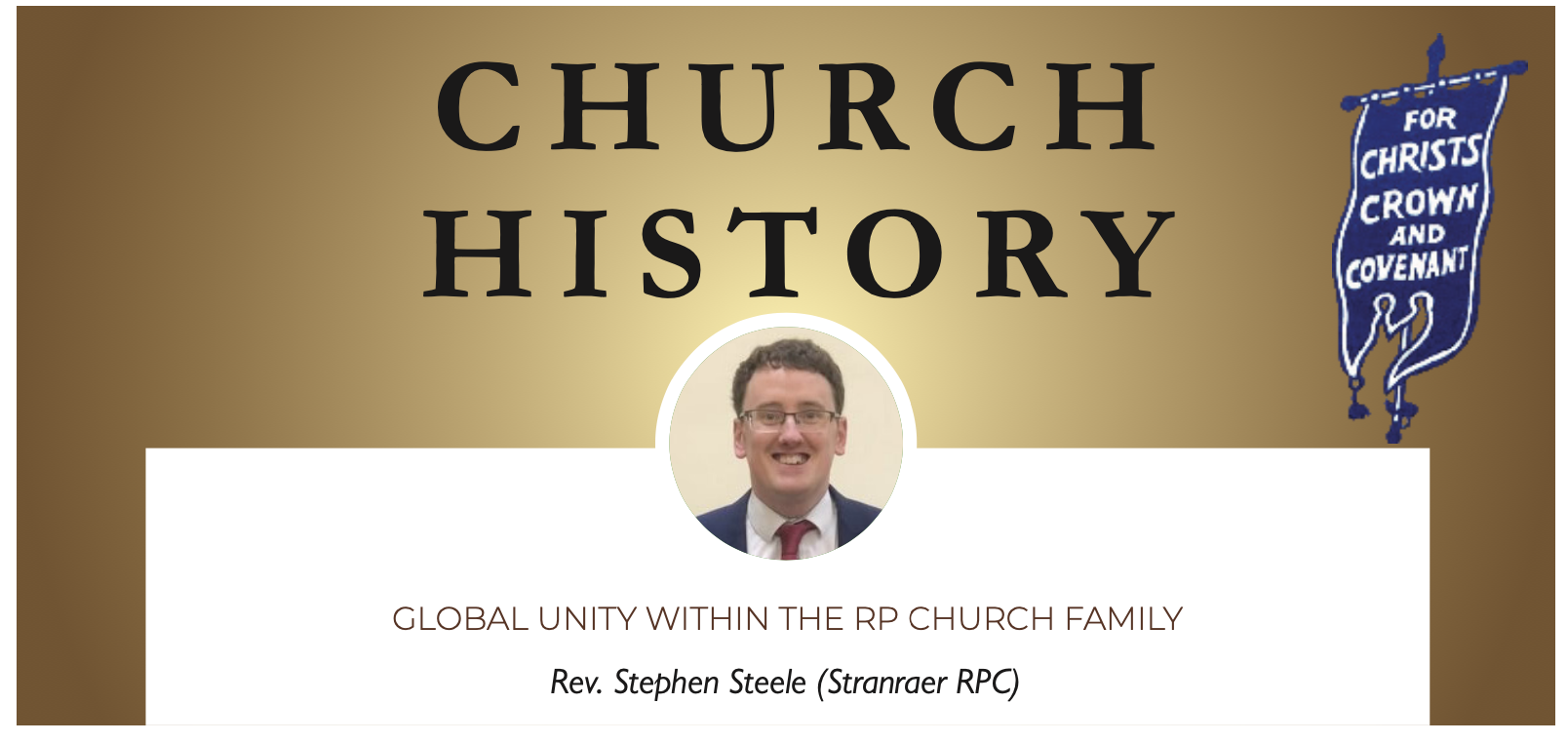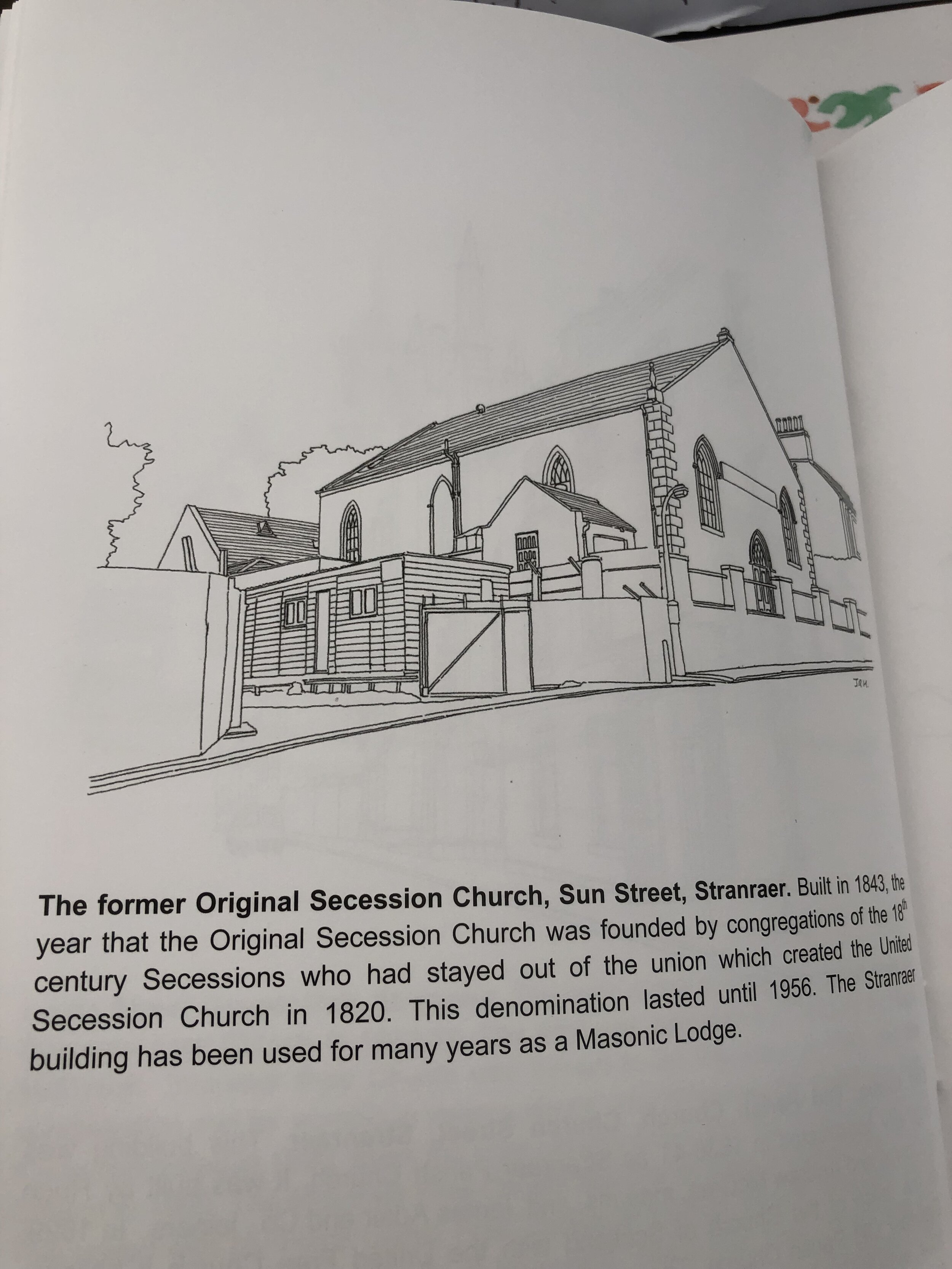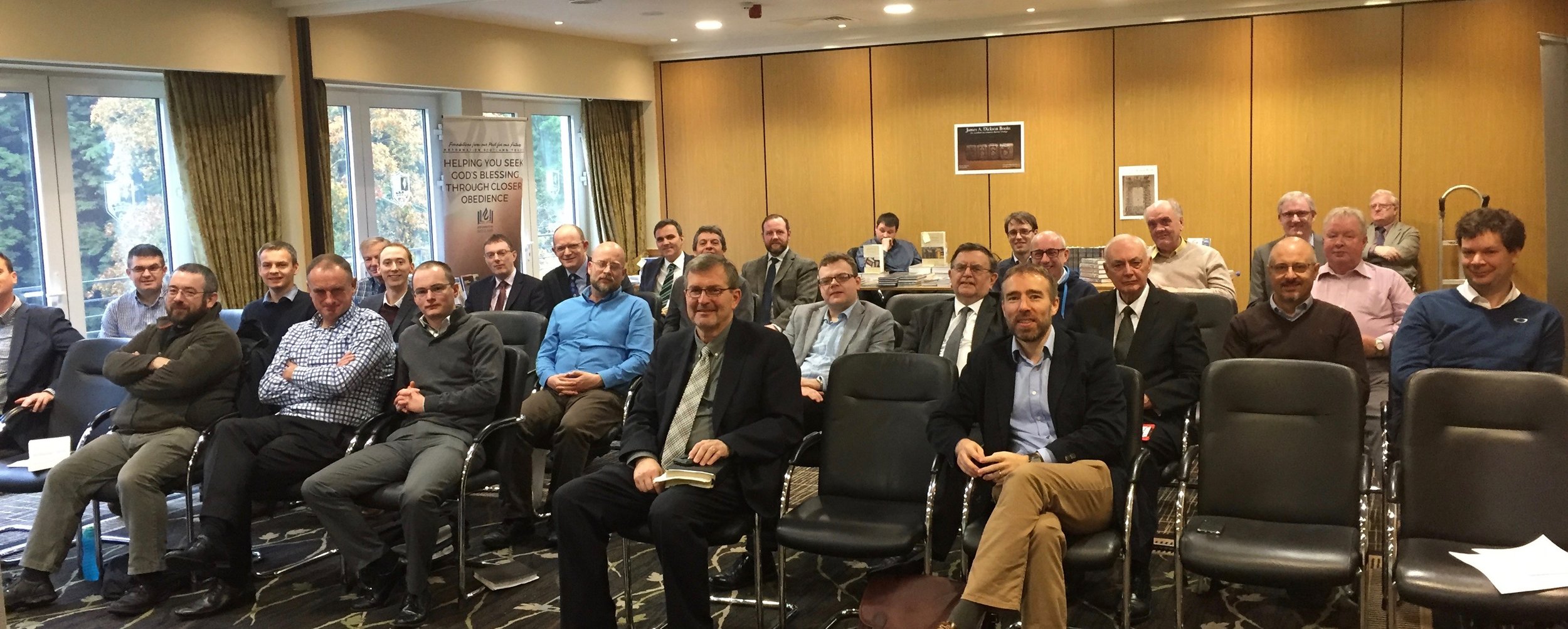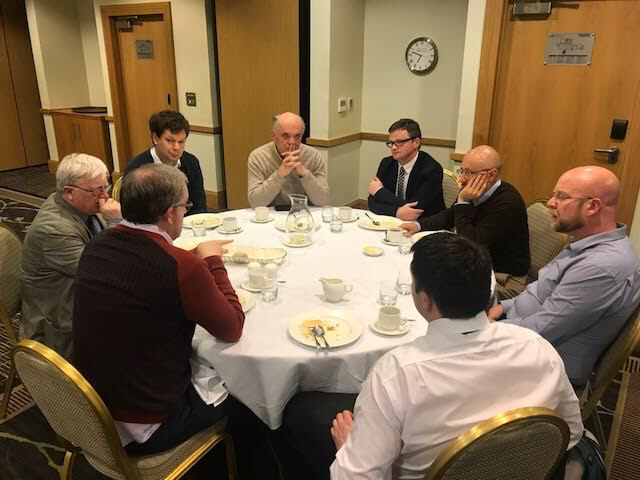Over the past year or so, the RP Global Alliance have contributed a series on Global Unity to the various RP Church magazines around the world - the Covenanter Witness, RP Witness and Good News. Stephen was asked to contribute two articles from a historical perspective. You can read the first one below:
Although Covenanters today make up a very small part of the church of Jesus Christ in each nation of which they are a part, the original Covenanter vision was for national unity with global cooperation. In these next two articles, after touching briefly on that original vision, we will look at how Reformed Presbyterians have sought to visibly express their unity with other Christians – both inside and outside the global RP family.
The Scottish Reformation
Each branch of the worldwide RP family traces its roots back to sixteenth-century Scotland – but what is often forgotten is that the Scottish Reformation itself had an international flavour. The first Scottish martyr, Patrick Hamilton, encountered Luther’s teachings when studying at the University of Paris. He also studied in Louvain and at the University of Marburg, where he developed a friendship with the French Reformer Francis Lambert of Avignon – possibly meeting Erasmus and Luther along the way.
In the build-up to the Scottish Reformation, John Knox spent four years with Protestant communities in France, Germany and Switzerland where he ‘experienced the diversity of international Protestantism’. Indeed, ‘for the remainder of his life he remained in contact with his European friends and acquaintances and valued his membership of this broad religious brotherhood’. For Knox, John Calvin’s Geneva was ‘the most perfect school of Christ that ever was in the earth since the days of the Apostles’, and Knox himself ministered to a congregation there before returning to Scotland.
Solemn League and Covenant
The Scottish Reformation, brought about under God by Knox and others in 1560, began to unravel before the end of the century. However, a Second Reformation recovered and advanced what had been lost, reaching its high point in the two covenants at the heart of Reformed Presbyterian identity. The Solemn League and Covenant has been called ‘the climax of Scotland’s Calvinist reformation’, though it was signed by the English Parliament as well as the Scots’, along with many people of all classes in Scotland, England and Ireland. This covenant called for ‘the nearest conjunction and uniformity in religion’ in the three kingdoms, in the hope ‘that we, and our posterity after us, may, as brethren, live in faith and love, and the Lord may delight to dwell in the midst of us’.
Covenanters’ Global Vision
One of the immediate consequences of the Covenant was the sending of Scottish delegates to join their English counterparts at the Westminster Assembly, to draw up what became the central documents of worldwide Presbyterianism. The Ordinance calling for the assembly, passed by both the House of Commons and Lords, explicitly made it their agenda to bring about ‘nearer agreement with the Church of Scotland, and other Reformed Churches abroad’. Indeed, Covenanters envisaged future international cooperation, with the martyr James Guthrie (1612-1661) arguing not just for provincial Synods and national General Assemblies, but for representatives from each country being sent ‘to a more universal Assembly’.
RP Evangelical Cooperation
By the time of Guthrie’s execution in 1661, the three kingdoms had rejected their vows, and those who still held to the vision of a Covenanted Reformation were a persecuted remnant. Following the end of persecution and the establishment of Reformed Presbyterian Churches in Scotland, Ireland and North America, the question for future generations of Covenanters became how they would exist alongside other Christians who did not hold to their ideals. In fact, with the advent of evangelicalism, by the nineteenth-century the question was not simply one of existing alongside Christians of differing beliefs, but working with them.
In the 1800s, leading Reformed Presbyterians such as William Symington (1795-1862) in Scotland and Thomas Houston (1803-1882) in Ireland, proved that it was possible to do just that without abandoning their own convictions. Both men were involved in numerous missionary and philanthropic societies with Christians from other denominations, and often preached in congregations outside their own branch of the church. Shortly after the formation of the Free Church of Scotland in 1843, Symington was asked to preach the opening sermon at an interdenominational conference to mark the bicentenary of the Westminster Assembly. His sermon, entitled ‘Love one another’, included a call for unity, which helped lead to the first meeting of the Evangelical Alliance. His older brother Andrew, the denomination’s Professor of Theology, was one of a number of Scottish RPs who took part in that first meeting in Liverpool in 1845. A minister of another denomination remarked: ‘his language in the midst of Evangelical Episcopalians, Methodists, Independents, Baptists, Seceders, Relief, Free Church, and others, indicated no coldness on the subject of Christian union, but the reverse’.
Reformed Presbyterians felt they had something to contribute to the doctrinal basis of such organisations. In fact, William Symington managed to get the original doctrinal statement of the Evangelical Alliance amended to include a reference to the mediatorial kingship of Christ. The Alliance also took a strong position on the Lord’s Day, and according to Symington ‘the movement has no connexion with Voluntaryism and…there are hundreds who are sound to the backbone on the subject of National religion’.
Around the same time Andrew Symington contributed a chapter to a book entitled Essays on Christian Union. He urged Christians from different denominations to speak to one another ‘face to face, and in co-operation in good works’ rather than just reading what others said, or writing to or about one another. He did not advocate institutional unity but saw denominations as like the different tribes of Israel – with their own banners but ultimately rallying around one standard against a common foe.
A Basis of Unity
What role did the Solemn League and Covenant play in all this? For William Symington, it would only be when the Spirit gave ‘the ministers and members of the divided Churches of the Reformation one heart and one way’ that ‘the glorious conceptions of the Solemn League and of the Westminster Assembly’ would be fulfilled. In Ireland, Thomas Houston went further, seeing the Covenants not simply as a spur to unity, but as the basis for it. He wrote a book advocating covenant renewal ‘so that those who are desirous of union throughout the churches’ would have ‘an approved basis of scriptural fellowship, and co-operation for the advancement of the Redeemer’s kingdom’.
Yet while Houston, ‘in marked contrast with many contemporary schemes for union’ desired a union around the Covenants, he also exhibited a warm catholicity when it came to those of different convictions. He could speak of ‘the great and the good of various names, Episcopalians, Independents and Presbyterians’. When Houston sought to raise funds for a church plant, several endorsements of his character by respected ministers of different denominations were included to ‘show that the attempt is not regarded as sectarian’. The testimony of the Seceder R. J. Bryce is a glowing tribute to Houston’s broadmindedness:
‘I do not know, in any denomination, a man of more catholic spirit than Mr. Houston, nor one who unites more perfectly a firm adherence to his own conscientious convictions, with the kindest and most brotherly feelings towards all who love the Lord Jesus Christ in sincerity, even in the denominations of Evangelical Christians who differ most widely from his own’.
Practical International Cooperation
Late nineteenth and early twentieth-century Reformed Presbyterians participated in bodies such as the Alliance of the Reformed Churches Holding the Presbyterian System and the International Congress of Calvinists. The Alliance (also known as the Pan-Presbyterian Council) began in 1875 and met in the UK or North America every few years. It soon comprised around 300 delegates from an impressive representation of denominations which also included churches in Europe, Africa, Asia, Australia and New Zealand. At its meeting in Belfast in 1884, Irish RP Minister J. A. Chancellor (1824-95) gave a paper on ‘The qualifications and duties of elders’. Elders, he said, should have ‘Catholic qualifications’ – realising that the church in any one place or country ‘is but a branch’ of Christ’s church. No single church could bear the burden of the Great Commission itself, and in fact ‘the more conscientious an elder is in the discharge of his duties, the more humble and distressed will he feel at the shortcomings of his own denomination, and instead of restricting his sympathies within its narrow circle, he will expand himself in agonizing earnestness over the whole field’. The servants of Christ should ‘take note of the efforts made by Churches with whom they may have scant sympathy, that they may learn to emulate their sacrifices, while honouring their devotion’.
In our own day, RP involvement in the wider church can be seen by participation in the European Conference of Reformed Churches, the North American Presbyterian and Reformed Council and the International Conference of Reformed Churches, as well as other efforts on more local levels.
Such involvement is not without its challenges – as when Chancellor spoke unsuccessfully against the admission of the anti-Calvinist Cumberland Presbyterian Church to the Reformed Alliance in 1884, or when a couple of years later the RPCNA threatened to withdraw if hymns were introduced to its meetings. On the whole however RPs have concluded that it is worth the effort since, as Houston once put it, ‘while the points on which evangelical Christians differ are not immaterial, those on which they are agreed are numerous and fundamental’.














